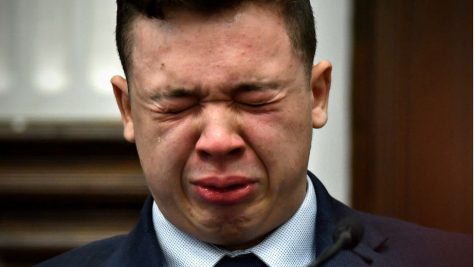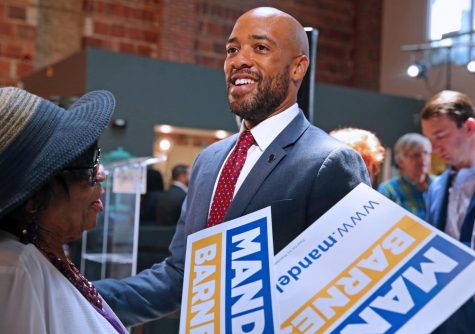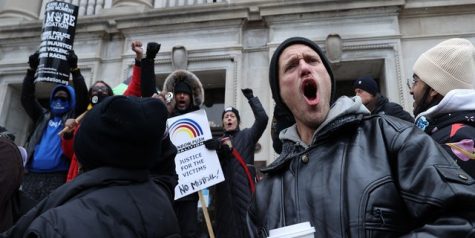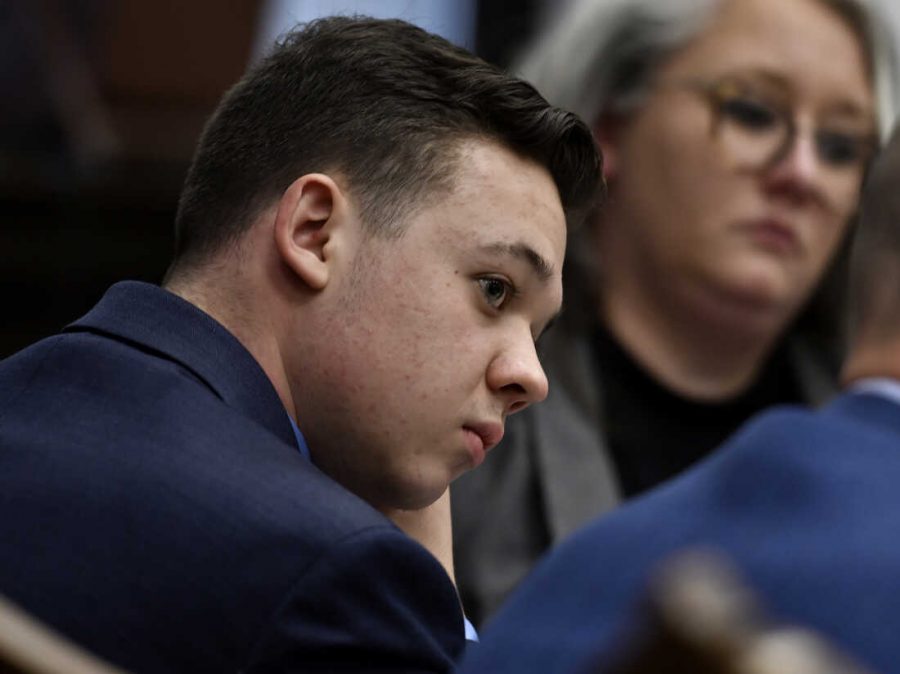Rittenhouse Found Not Guilty
Kyle Rittenhouse, left, listens as his attorney delivers his closing argument during Rittenhouse’s trial.(Sean Krajacic/The Kenosha News via AP, Pool)
Kyle Rittenhouse was found not guilty by a Wisconsin jury on Friday, after three days of deliberations from the jury. The case had caught national attention and was closely watched by groups on all sides. Over time, the case was seen as an inflection point on race, vigilantism, and guns.
Throughout the trial, Rittenhouse maintained that he shot and killed two people out of self-defense. He killed the two individuals and shot a third at a protest in Kenosha, Wisconsin over the police shooting of Jacob Blake. Rittenhouse had crossed state lines, driven by his mother, to help protect property from rioters and looters. He brought with him an AR-style semi-automatic weapon and stated that he did not intend to use it, but rather scare people away from property.
Throughout the trial the defense stated that Rittenhouse only discharged his weapon because he felt his life was in danger. The defense claimed that another protester wielding a gun towards Rittenhouse was enough cause for Rittenhouse to defend himself by firing his weapon. The validity of their claims have always been debatable, but it is clear that the jury agreed with them in this instance.

The prosecution attempted to paint Rittenhouse as a wannabe cop and protector. They maintained that Rittenhouse had no reason for being in Kenosha and had no legal right to harm others with his weapon. Further, they maintained that he crossed state lines with an illegal weapon, which further proves his guilt and unnecessary presence.
The decision was met with anger across the country as some felt the legal system was favoring Rittenhouse because of his race. Wisconsin Lt. Governor Mandela Barnes, a candidate for US Senate in Wisconsin, said that the case held a racial double standard.

Other groups felt that the decision was a strong reinforcement of the second amendment. Gun-rights groups have stated that other protesters reaching for Rittenhouses’ gun was just cause for him to defend himself. They felt that this decision reflected their take on gun owner’s ability to defend themselves. It is important to note that, legally speaking, this claim is disputed and there is no clear correct answer.
President Joe Biden addressed reporters about the verdict, stating that, “while the verdict will leave many Americans feeling angry and concerned, myself included, we must acknowledge that the jury has spoken.” On the other hand, former President Trump congratulated Rittenhouse on the verdict and praised the jury for their statement on self-defense. Trump has continually praised Rittenhouse as a patriot who was protecting innocent businesses from looting and destruction.
Wisconsin Governor Tony Evers recognized the polarizing nature of the decision and sent around 500 National Guard troops to Kenosha in preparation for outrage. While there were protests in Kenosha, they were relatively non-violent. Other protests across the country in cities such as New York and Chicago also remained peaceful. In Portland, Oregon there was some unrest, but still very little compared to the protests during the summer of 2020.

Many legal scholars were dismayed with the decision; they felt that it once again reinforced the white privilege that is prevalent in the American legal system. Other legal scholars felt that the decision was a reinforcement of the second amendment, and also individual citizens rights. Depending on who you ask, this decision was either unjust and unfair, or reinforcing and necessary.
The decision comes with continued unrest about policing and race in America. After the Black Lives Matter protests of 2020, many hoped there would be a permanent change in the American legal system that would treat everyone equally. The conviction of Derek Chauvin served to even further that hope. To supporters of the BLM movement, the Rittenhouse acquittal felt like a step backward from their forward momentum.
Eyes now turn to Georgia, where the men who killed Ahmaud Arbery are standing trial for their actions. It is unclear when that decision will be made, but it will certainly be watched by people across the country. Both of these cases are the first major legal decisions surrounding the Black Lives Matter protests and movements since the Chauvin trial. As courts continue to make decisions surrounding race and policing, it will become increasingly clear the degree that the BLM movement had on some of America’s oldest institutions.







